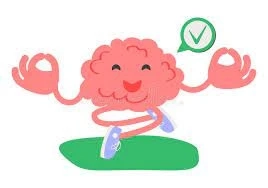The brain is full of chemicals that help in the neurotransmission of information across the body. Different elements of life and the body will determine the level of neurotransmitters which will in turn affect the health of your brain and overall wellbeing. The problem of stress arises when you put your work at first and your brain health at second. Putting your brain first will improve your life in achieving milestones.
Here are some of the brain chemicals, their benefits and effects in case they are too high or too low.
DOPAMINE
Also called a chemical messenger, this neurotransmitter is synthesized by the body for use by the nervous system to send messages between nerve cells. Dopamine helps us strive, focus and feel pleasure. It’s made by changing the amino-acid tyrosine to a substance called dopa then into dopamine.
Dopamine contributes to feelings of:
AlertnessFocusMotivationHappinessMoodPain processingLow levels of dopamine lead to a vast range of health issues such as Parkinson’s disease. It affects various functions such as learning, motivation, heart rate, blood vessel function, kidney function, sleep, lactation, mood, movement, attention and pain processing.
Dietary sources include fruits, leaves and beans of velvet beans etc.
Acetylcholine is the neurotransmitter commonly referred as the chemical messenger. It is an organic chemical released by nerve cells to end signals to other cells throughout the body. It was the first neurotransmitter to be discovered and described as “vagus stuff” by Otto Loewi because of it’s ability to mimic the electrical stimulation of the vagus nerve. It is the main neurotransmitter in the sympathetic and parasympathetic neurons, adrenal medulla, sweat glands and at the piloerector muscle
This neurotransmitter helps in motor functions that contracts smooth muscles, dilates blood vessels, increases bodily secretions and slows heart rates. It stimulates a response or blocks a response and thus can have excitatory or inhibitory effects.
Low levels of acetylcholine could lead to difficulty in learning, loss of memory and even Alzheimer’s disease.
It can be sourced from foods such as meat, whole grains and fish.
SEROTONIN
This hormone neurotransmitter helps in stabilizing our mood, feelings of well-being, happiness and regulating digestion. The level of serotonin is affected by stress, exercise and sunlight.
The low level of serotonin leads to anxiety and obsession. The dietary supplements are foods rich in folates, fiber and vitamin D fortified foods.
ENDORPHIN
This opiate-like chemicals are produced internally in response to pleasure and excitement. The release of endorphin affects the increase and decrease of serotonin levels. It relieves anxiety and pain, reduce stress, improves mood and strengthens the immune system.
Foods such as chocolate, chili pepper, cakes and cookies.
GLUTAMATE
This neurotransmitter regulates the development and creation of nerve connection also enhances memory and learning. Dietary sources include seafood, tomato, spinach and seaweed.
GABA (Gama-Amino butyric Acid)
GABA is involved in improving focus and vision and regulates the nervous system. The excess of glutamate brings about seizures while low levels lead to a coma. Efficient GABA levels balance the high glutamate levels since glutamate is converted into GABA naturally.
GABA can be found in tomato, spinach, mushroom, potato, wheat, rice, chestnut and peas.
Memory supplements
Nootropics are memory supplements referred to as fat soluble neuro-enhancers, cognitive boosters that are either naturally or synthetically produced. If one has a deficiency of chemicals, physicians will recommend supplements. These types of supplements include a number of agents like cholinergic, serotonergic, dopaminergic and antioxidant drugs. http://www.bmrat.org/index.php/BMRAT/article/view/513


